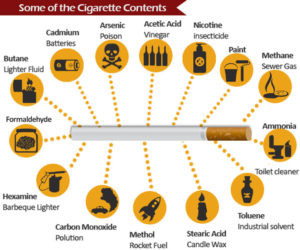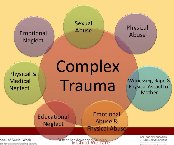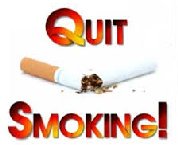I Wanna Quit Butt……
The BEST Smoking Cessation Program In Town!
This program works because it:
- Eliminates Cravings

- Does not use nicotine replacement products because they do not help overcome the emotional or psychological issues
- Eliminates Psychological Reversals – Self-sabotaging thoughts/beliefs that prevent success
- Overcomes the addiction to nicotine, gently, without withdrawal symptoms
- Creates positive, smoke free, self-image
- Very high success rate compared to other programs
- You learn the EFT process and can use it anytime you need to
- Removes emotional connections to triggers, associations, and habits
The Process:
- The process involves filling out a questionnaire/inventory about your smoking associations, triggers, patterns and habits.
- EFT is applied to situations or groups of similar situations to disconnect the association.
- TAT is applied to create a positive self image of how you look, feel, smell, and how much you weigh.
- TAT is also applied heal the origins and storage places of the issues, create forgiveness and heal the part of you that benefited from smoking.
The Cost of Smoking:
- Smoking 1 pack a day @ $10.00/pack is $70/week.
- That’s $301/month and $3,612 annually! That’s a nice vacation!
- Tobacco related health care in New York State is $6.6 billion/annually or more.
- Tobacco related health care in the nation is over $40 billion/annually or more.
- $5 billion or more spent annually to promote smoking.
- A pack of cigarettes costs $0.05 to produce
- Each pack of cigarettes sold costs the nation $7 in medical care and lost productivity
Facts About Smoking:
- Nicotine is the most addictive substance there is
- Cigarettes contain over 4000 chemicals that you inhale
- Each cigarette smoked reduces you life by 11 minutes
- Each carton of cigarettes smoked represents a day and a half of lost life
- Smoking a pack of cigarettes a day for a year shortens your life span by 2 months
- Smoking is responsible for at least 10 times as many deaths as all other drugs combined
- Tobacco related diseases are the leading cause of deaths in patients previously treated for substance abuse
- Smoking is responsible for at least 4 times as many deaths as alcohol
- Smoking alters people’s mood
- There is a close association between people who smoke and people who are depressed
- Smoking alters the regulation of neurotransmitters and may actually cause depression
- Smokers are more likely to experience anxiety and panic attacks
- Smoking is a way of self-medicating
- Lung Cancer kills more women/year than Breast Cancer
- Recent research connects childhood cavities to exposure to second hand smoke
- Women have a harder time quitting than men
- 1200 people die every day from smoking related causes. By comparison, 342 people die every day from alcohol abuse and 40 people die every day from other substance abuse like heroin, and cocaine.
- People in recovery who smoke are more likely to relapse
- Exposure to second hand smoke for as little as 30 minutes causes changes in the lungs and blood vessels
- 90% of all lung cancer has been linked to smoking
- Smoking during pregnancy increases the risk of premature delivery, lower birth weight and may account for developmental delays observed in fetuses and infants of smoking mothers>
- Research links childhood cavities to exposure to second hand smoke
- 25% of the litter in the nations cigarette butts
The Benefits of Quitting over Time:
- 20 Minutes after quitting: Your Blood pressure drops to a level close to what it was before the last cigarette and the temperature of your hands and feet increases to normal.
- 8 Hours after quitting: The carbon monoxide level in your blood drops to normal.
- 24 hours after quitting: Your chance of heart attack decreases.
- 2 weeks to 3 months after quitting: Your circulation improves and your lung function increases up to 30%.
- 1 to 9 months after quitting: Coughing, sinus congestion, fatigue, and shortness of breath decrease; cilia regain normal function of moving mucus out of the lungs, cleaning the lungs and reducing the risk of infection.
- 1 year after quitting: The excess risk of coronary heart disease is half that of a smoker’s.
- 5 years after quitting: Your stroke risk reduces to that of a nonsmoker 5-15 years after quitting.
- 10 years after quitting: The lung cancer death rate is about half that of a continuing smoker’s. The risk of cancer of the mouth, throat, esophagus, bladder, kidney and pancreas decrease.
- 15 years after quitting: The risk of coronary heart disease is that of a non-smoker’s.











